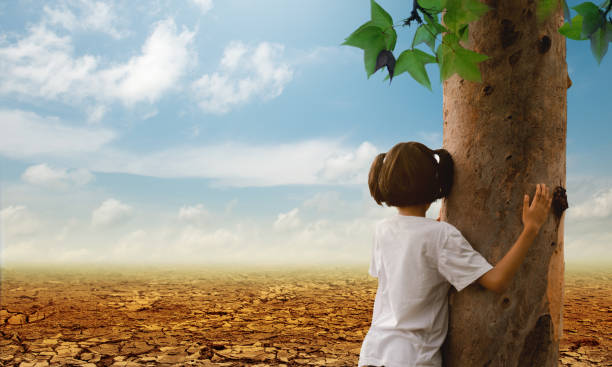An oft-ignored factor of health, climate change nonetheless affects vulnerable populations. One such population is children. “We clearly recognize that climate change has become a health emergency,” said Caren Solomon, deputy editor of the New England Journal of Medicine (NEJM). For context, this is one of the oldest and most reputable medical journals. NEJM recently published a series on the effects climate change has on public health, including the fact that 1 billion children worldwide are exposed to “very high levels of air pollution.”
Children are even more vulnerable to climate change than adults due to many reasons, including the fact that developing bodies have poor regulation of heat, greater fluid and food requirements, and less effective barriers in the respiratory, blood-brain, and skin systems. Children also tend to spend more time outside, increasing their exposure to air pollution caused by climate change. Air pollution can also impede growth in lung development which can cause more severe respiratory illness and conditions later in the child’s life.
One particular risk currently is wildfires. Around 7.4 million children are exposed to wildfire smoke each year and this number will increase as climate change worsens. All children are at risk from health issues if in range of wildfire smoke and more so if they have allergies, asthma, or other health issues. Because children breathe deeper and have less nasal filtration, wildfire smoke can affect them more. Smoke can travel across the United States and affect those not even in the same region as the fires.
Climate change also has been shown to have a mental health impact on children. At a time when mental health is at heightened risk already from Covid and other issues, this is leading to a crisis among children. Climate change affects mental health with anxiety, depression, and PTSD about the effects of climate change, as well as from matters such as leaving home due to wildfires, hurricanes, and other natural disasters. Children are not as able to handle changes and stress as adults.
Unfortunately, children who are exposed to climate change issues also have a few vital facts that make it even harder on them. For one, children have immature methods for their bodies to heal from damage done. This includes detoxing chemicals, a fully functioning immune system, and the ability to repair DNA damage. Additionally, this is further compounded with risk when children are in socially and economically disadvantaged families. These are the children who will be hit hardest sooner.
There are things parents can do to help their children, such as being prepared for emergencies with supplies and a week’s supply of any medicines their children need. Those exposed to wildfire smoke may limit their children’s time outdoors and install quality air filters inside the house. Keeping an eye out for worsening symptoms is crucial with young ones. Finally, supporting national measures on stopping climate change is key as well, as these health issues will only increase without action.

